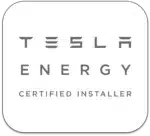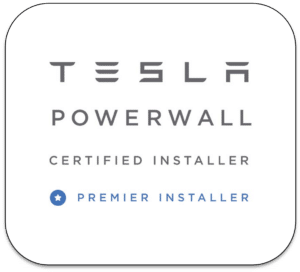A Kentucky solar installation is a good investment that has many benefits, from long-term electric bill savings to greater energy independence. Many homeowners often wonder if residential solar panels also have any downsides? So, it’s important to weigh the pros and any cons of solar for your home before investing in a solar energy system.
At Solar Energy Solutions, we want you to have all the facts before you go solar. We help our customers make the best decision based on their home and needs—if solar doesn’t make sense for your home, we’ll tell you!
In this guide, we compare the pros and cons of installing solar panels so you can decide whether the investment is worth it for your home.
Pros of Kentucky Solar Panel Installation
Solar panels are worth it in Kentucky thanks to the many benefits they provide.
Long-Term Savings
Solar panels have a long lifespan (25+ years in most cases) which means they can save you money not just now but for decades. With a Kentucky solar panel installation, you can produce some or all of your own electricity, significantly reducing the amount of power you need to buy from your utility and saving you money. In a few years, your solar panels will pay for themselves through electric bill savings.
Locked-in Electricity Costs
With a Kentucky solar installation from Solar Energy Solutions, you will own your power generation and have a guaranteed output for 25 years. This locks-in what you pay for electricity so you can avoid rising energy prices. (Just recently, Kentucky Power proposed raising residential rates by 18%!)
Blackout Protection
Adding a battery like the Tesla Powerwall to your solar energy system gives you the additional benefit of blackout protection. Solar panel and battery storage systems can stay on during a power outage and provide backup power to your home so you can stay safe and comfortable until the lights come back on. Did you know that on average, Kentucky homeowners experience about 10-15 hours annually of power outages?
Tax Benefits
Kentucky solar panel and battery installations qualify for the 30% investment tax credit (ITC). The ITC, which is also known as the federal solar tax credit, reduces what you owe in federal income tax by 30% of your solar costs for the year you install your system. If your tax credit is worth more than you owe, the remainder can be rolled over to the following year. The solar tax credit reduces your upfront solar installation costs and helps you break even faster.
Energy Independence
Solar panels and batteries put you in control of your own electricity production and reduce your reliance on your utility company. With rising fuel costs driving up the cost of electricity and extreme weather conditions putting a strain on the grid, it’s more important than ever to own your electricity generation.
Lower Carbon Footprint
Electricity generation is the second-largest source of greenhouse gas emissions in the United States. By switching to renewable solar electricity, you can significantly reduce your reliance on fossil fuels and help create a cleaner, more sustainable environment for yourself, your children, and your grandchildren.
Cons of Kentucky Solar Panel Installation
There aren’t a lot of downsides to solar energy, but there are a few things you should be aware of before making the decision to install solar panels for your home in Kentucky.
Upfront Cost
The biggest downside of solar energy is the upfront cost. Solar panels will pay for themselves in the long run, but they require an upfront investment.
Thankfully, the cost of solar panels has been dropping steadily over the years. In Kentucky, solar installation prices have fallen by 54% over the past 10 years while the cost of electricity has only gone up. With lower installation costs and higher electricity prices, solar makes sense financially.
Solar Energy Solutions also offers excellent financing options to help you manage your costs. In most cases, your loan payment will be lower than your monthly electricity bill, saving you money right off the bat. You’ll also save 30% with the solar tax credit, which covers both solar panels and battery storage.
Related: Cost vs Savings of Installing Solar Panels
Attacks on Net Metering in Kentucky
Net metering is a solar incentive system in which grid-tied solar customers can sell their excess power to their utility company. Unfortunately, net metering has faced a long line of attacks in Kentucky. In 2020, SB100 allowed utility companies to weaken the 1 for 1 net metering structure they were previously required to provide. Duke Energy has followed suit, eliminating its full retail rate net metering plan.
These attacks on net metering reduce the value of solar for homeowners, but they don’t eliminate it. Solar battery storage reduces the need for net metering by allowing you to store your excess electricity on site so you can use it yourself. With battery storage, you can save the excess power your solar panels generate during the day instead of sending it to the grid. At night, when your solar panels aren’t producing power, you can use your stored electricity instead of buying power from the grid. With net metering, the grid acts as a battery, but with energy storage, you don’t need it.
Does Kentucky Solar Make Sense for Your Home?
At Solar Energy Solutions, we believe that the pros of solar power outweigh the cons. Our solar process is all about you and your needs, starting with an assessment of your home and roof. We will evaluate your energy needs, determine your solar viability, and let you know whether your house is a good fit for solar. We’ll also design a custom solar panel and battery system tailored to your needs to ensure maximum savings and return on investment.
Solar Energy Solutions is a local, family-owned company that believes in the power of solar to transform lives. We have seen firsthand how much solar energy can save Kentucky homeowners and we are here to help you make the switch with a seamless solar panel installation process.













